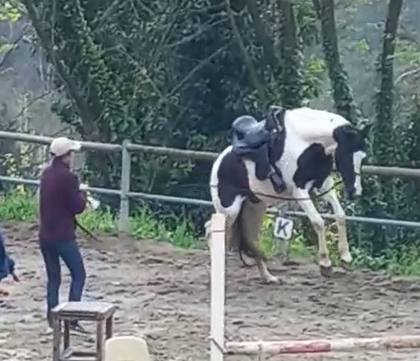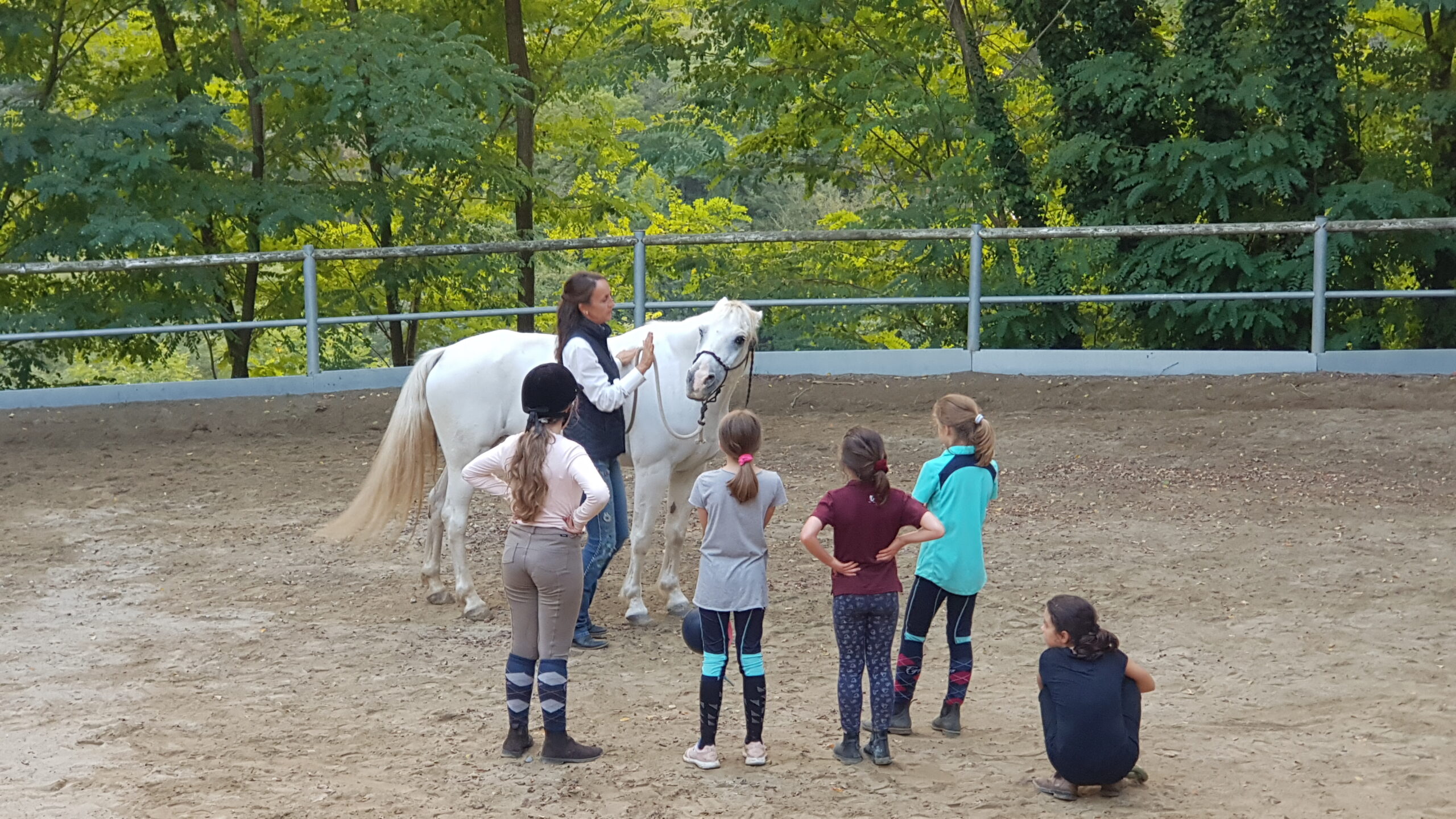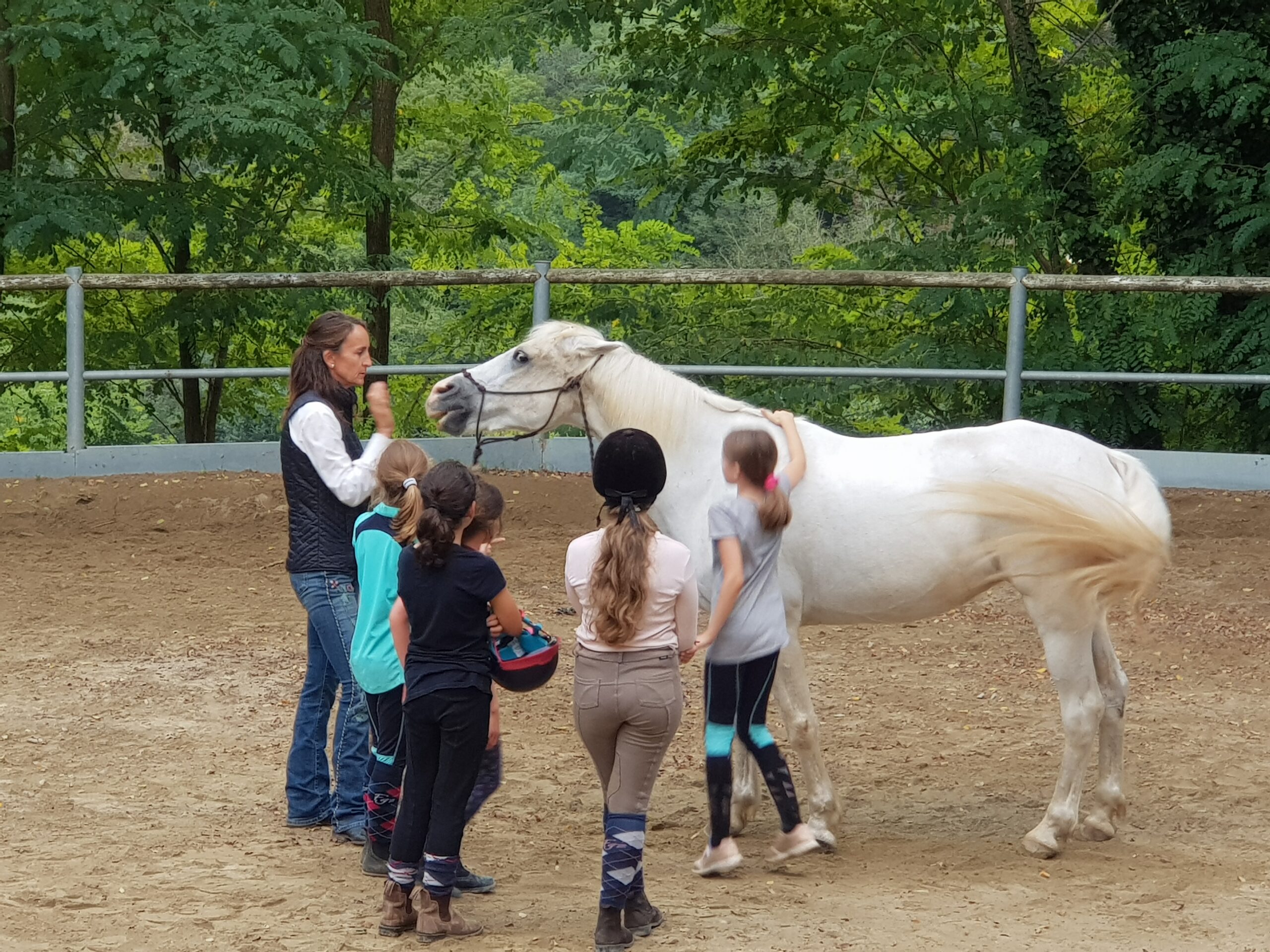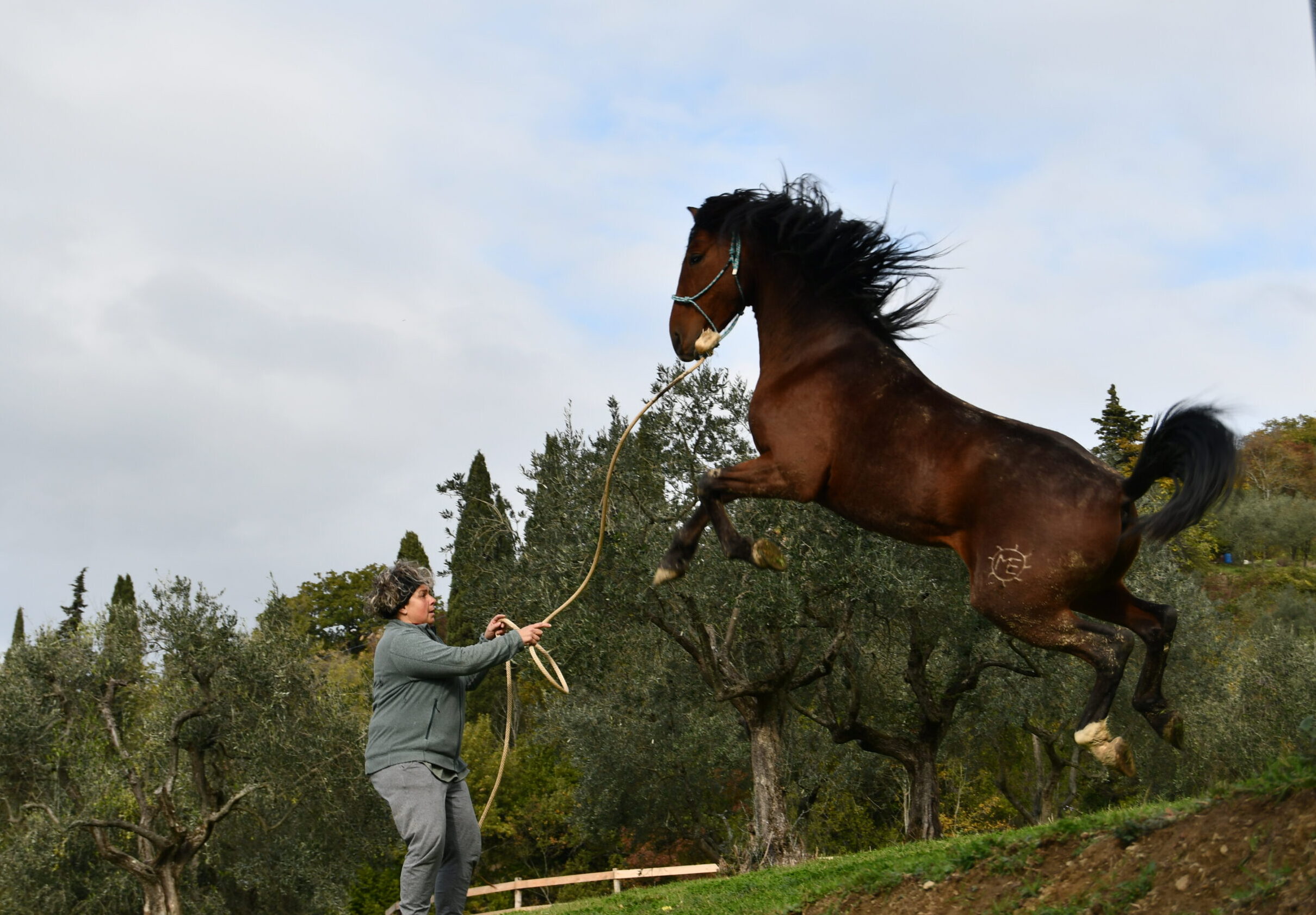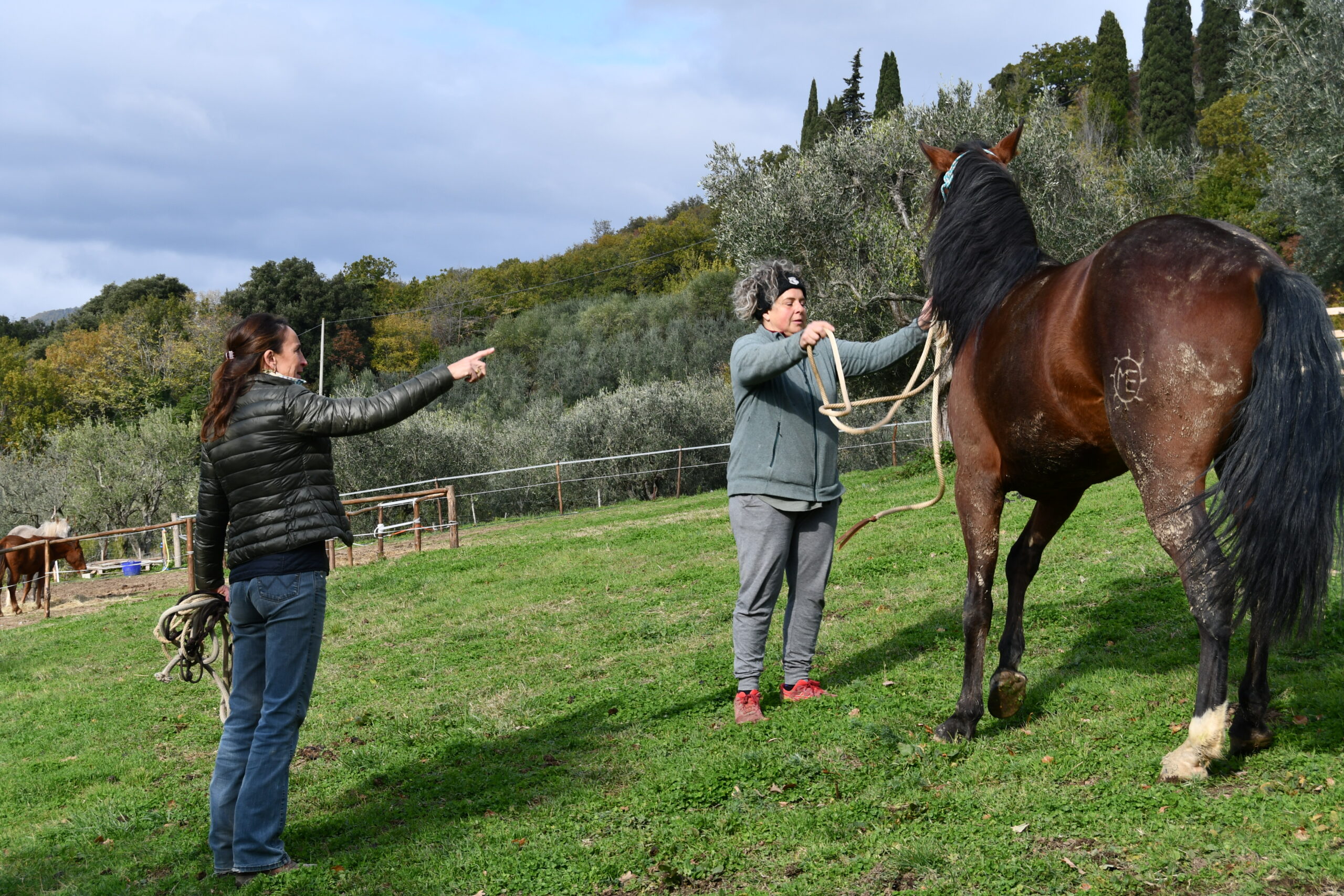The Soul of the Horse
by Elena Bajona
When we talk about problem horses, in most cases, we refer to animals that have completely lost trust in our species and find themselves with a broken Spirit. The responses we receive as a consequence can be manifold: from aggression to self-harm, or from lobotomization to apathy, often confused with relaxation.
Even wild horses, with whom I lived for several years, exhibit the same typical reactions, although with completely different timing. A wild horse captured improperly and confined in a restricted space for years may never recover. Its spirit doesn’t return; its life no longer makes sense. Encountering their despair has deeply touched me, but that’s an article in itself.
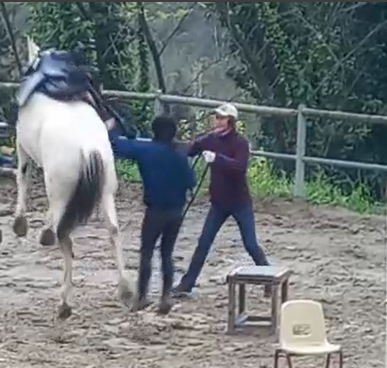 Regarding our domesticated horses, accustomed to humans for centuries, they have certainly evolved to find various survival strategies.
Regarding our domesticated horses, accustomed to humans for centuries, they have certainly evolved to find various survival strategies.
In both cases, caring for them, or rather, cure their souls, is a challenging task. Tricks or methodologies for their own sake are not enough. It takes a deep understanding of the horse’s mind, its subtle movements, and how quickly it evolves or devolves based on the environment in which it grows and lives over time.
True horse lovers know that each of these magnificent animals is an individual with its own personality and life experiences. However, many develop behavioral problems, often stemming from traumatic experiences or difficulties in their history. But here’s the good news: no horse is incurable, and each of them can overcome traumas, misunderstandings, or abuses very quickly.
The main causes of problems, more or less severe, that horses demonstrate, both physically and mentally, are primarily due to incorrect management.
Management that does not seriously consider species-specific needs. Needs such as space, light and air, nutrition, movement, socialization, and even learning timelines. Everything starts from here.
There are many innovative approaches that can be implemented to resolve various problems. In any case, I always recommend approaching with a overall vision. Often, a physical problem is caused by a psychological issue and vice versa. A psychological problem can cause a physical problem that may initially be suppressed but can eventually explode into something irreversible. That’s why a close collaboration with expert veterinarians who take care of the physical aspect is always included in my work.
My approach combines various factors such as behavioral and cognitive therapy, psychotraumatology, with the integration of psychological and neurobiological components, along with therapeutic methods like sensory psychotherapy, equine awareness, and compassion-focused therapy. Integrating this knowledge allows me to create customized therapeutic programs for each individual.
However, everything is supported by an extreme sensitivity to interpret the motions of the soul that the horse may not express. Often, even serious problems are invisible from a behavioral point of view and can then lead to significant physical issues.
Empathic and patient approach is key to establish trust and promote healing. To interact with a problematic horse, one must be present, listen, and know how to work with his disordered energy. It doesn’t matter to know what triggered its downfall because it usually involves abuse during its youth, where innocence is easily manipulable.
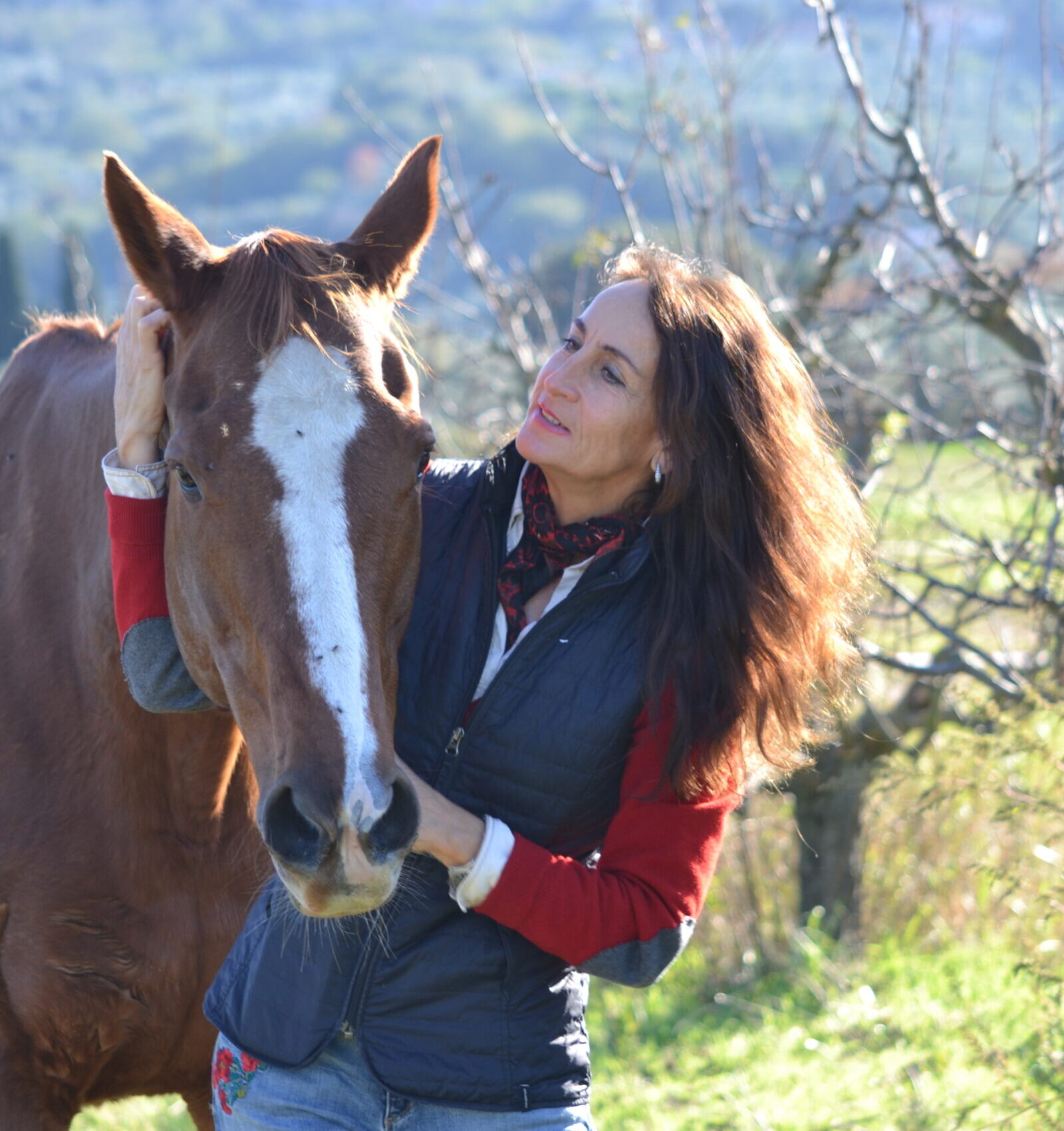 Crucial for me is to base the solution approach on a deep understanding of the horse’s nature, of his being a horse without any interference from humans. To understand who he is and to resolve any psychological problems, a comprehensive view is needed, and this is where applied ethology and psychology comes into play.
Crucial for me is to base the solution approach on a deep understanding of the horse’s nature, of his being a horse without any interference from humans. To understand who he is and to resolve any psychological problems, a comprehensive view is needed, and this is where applied ethology and psychology comes into play.
I often interface with situations where horses are interpreted with a mindset too human-centric where control is the foundation. Events and behaviours are hypothesized and interpreted with a human mind. But the human mind is completely different; we cannot let it come too much into play. Moreover, conditioning-based therapies are only superficial deviations that do not dig deep. On the surface, you see results, yes, but they don’t last long because any mechanism prolongs or even erases any kind of healing.
Even abandoning the animal to the herd without any support from us can be counterproductive. Traumas do not resolve on their own, and sometimes exorcising them through our presence helps the horse overcome them quickly.
For me, the horse must be able to express himself, always. In happy moments as well as in dark, sad, or deeply anguished moments, without judgment and without the will to silence or “correct” them because no emotion is wrong.
Thus, the care of problematic horses starts with management and returns to management: for them, like for every horse, creating a complete setting for equine well-being is necessary. Unconventional medicines such as acupuncture, the still little-known Ayurveda, but also massages, Reiki, and other natural remedies can be a great accelerator and a gentle support to the healing process on all levels: physical, mental, and spiritual.
Only with patience, empathy, and expertise can you help any horse overcome everything, promoting a happier and more balanced life in the human world.
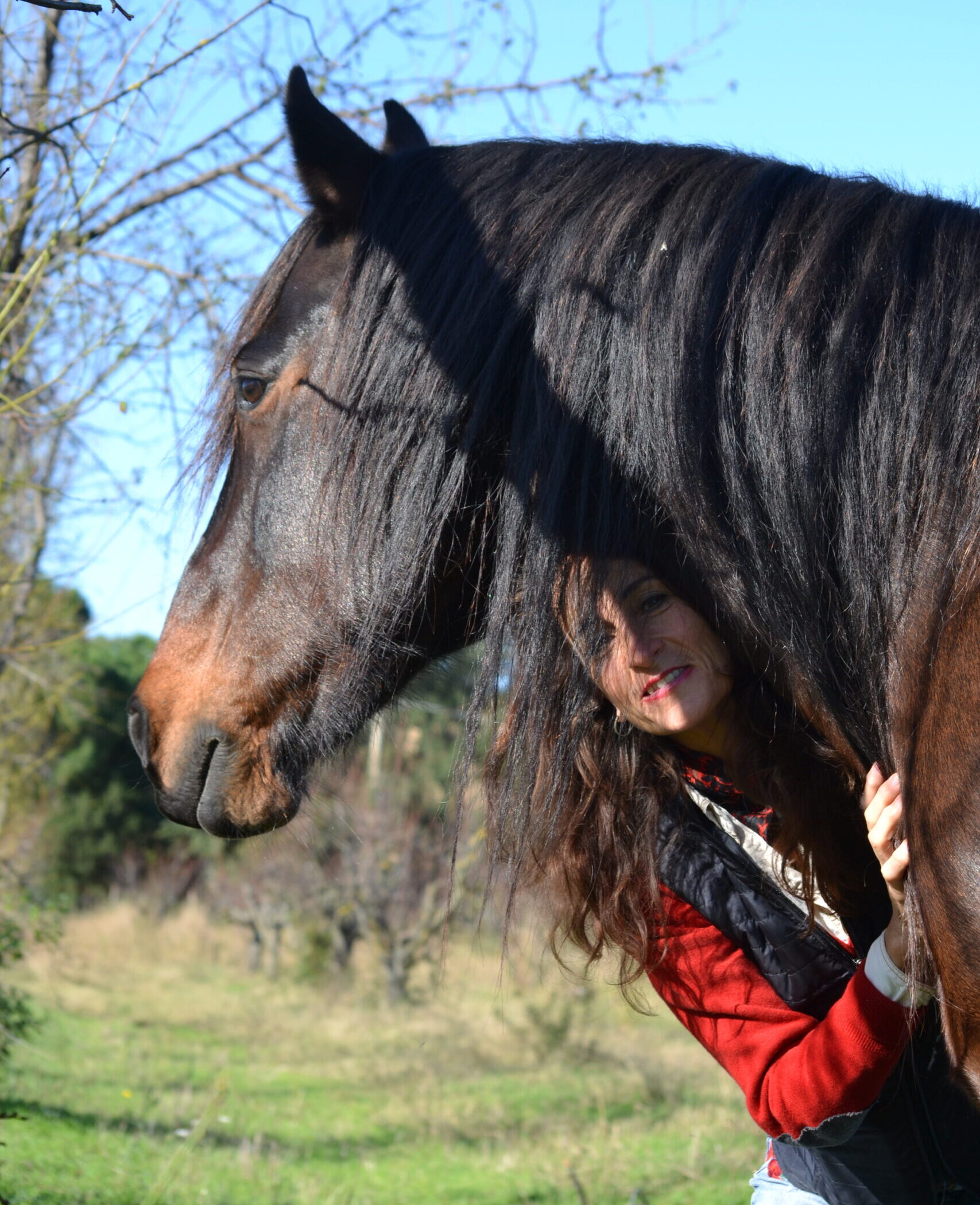 Stay Smart, Stay Wild!
Stay Smart, Stay Wild!
Elena Bajona
December 2023


